Evidence shows that improving soft skills competency can increase employee productivity
When it comes to making decisions about how to spend what is often a limited training budget the emphasis for many organisations is on skills and knowledge that are directly linked to the employee’s job role. But there is an increasing amount of evidence that investing in soft skills can have an important impact on employee productivity

Soft Skills
- Soft skills are the personal attributes that make it easier for a person to interact with other people in various situations. Soft skills are usually described in subjective terms
Employees are often fired because
they lack soft skills

Hard Skills
- Hard skills are the skills and knowledge that make it possible for an individual to perform a specific task or activity. Hard skills are usually described in objective terms
Candidates are usually hired for
the hard skills they have
Soft Skills Drive Behaviour
If hard skills define what an employee does then soft skills define how that employee behaves at work, whether they are someone that can be relied on in a crisis, the role they take in a team. Most importantly the soft skills that an employee has influence how they apply the organisations values
Perceptions of Soft Skills are Changing
In the past, developing employee soft skills would have been a low priority for many organisations, but attitudes are changing.
LinkedIn highlighted in their 2018 Workplace Learning Report that the number one priority for developing talent is soft skills training.
Examples of Soft Skills

Adaptability
- When the only constant aspect of work is the need to change, and often to accommodate the unexpected, a successful business is one with employees who are not afraid of change and are quick to adapt

Critical Thinking
- When decisions need to be made, making the correct decision will be the result of analysing every option. This is only possible when an employee knows how to think critically and analyse information

Teamwork
- Organisations are networks of teams, each one focused on completing a specific activity. When employees understand how teams work organisations become more productive

Communication
- Being able to communication clearly helps make sure that employees understand what needs to be achieved, avoids delays and duplication, and ensures targets are achieved
Bottom Line Impact
Improving employee soft skills can according to research from Boston College, Harvard University, and the University of Michigan, can boost employee productivity by 12 percent and deliver a 250 percent return on the investment.
If leaders incorporate soft skills into their relationship with employees they can, according to research conducted by Hay Group increase their team’s performance by up to 30percent.
The Society of Human Resource Management have cited studies which show that poor communication skills can cost a company with 100 employees an average of $420,000 per year.
Making Soft Skills Training Work
There are some simple steps that an organisation can take to ensure the success of a soft skills training programme

Set the Expectation
- Make a statement that soft skills are important that you will assess them hiring decisions, and you will include soft skills competence in performance management assessments

Create a Culture
- Soft skills competence leads to more confident and supportive relationships and greater understanding amongst employees, which results in the emergence of a positive work culture

Think About the Future
- Keep your definition of soft skills competence fluid enough to adapt to the changing needs of your organisation, so that employee productivity continues to increase, and employee engagement continues to improve

Accommodate Different Working Styles
- Focus soft skills training on increasing understanding of, and adapting to the working styles of others so that your organisation can avoid the unproductive conflict created by employees different working styles
How H2R Helps
H2R is designed to help employers create hiring to retiring relationships with their employees. A key aspect of this is the development of soft skills competency standards and incorporating these standards into every aspect of that employer employee relationship

Hiring
- With H2R you can include the soft skills requires of a role in every stage of the hiring process, from creating job descriptions and personal specifications to competency assessments and interview questions.

Employee Communications
- The employee communications module enables you to publish editorial, audio and video content that supports your corporate values and the soft skills that enable your employees to live those values, every day

Learning and Development
- H2R includes an extensive range of soft skills focused learning resources and training courses including the Bookboon library of soft skills related e-Books, e-Learning, and e-Talks

Performance Management
- H2R enables you to set both soft skills related performance standards and objectives, and agree improvement plans for an employee’s present, and future roles with the organisation
Someone to talk to
A H2R professional is available to help you use soft skills development to improve employee productivity



